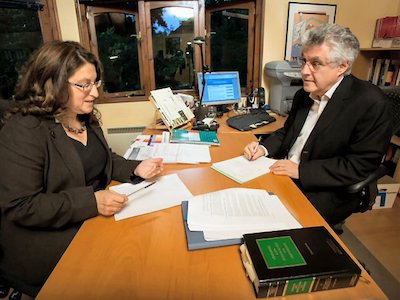Confidentiality
 In business, situations often arise where it is necessary for people to disclose information which is confidential: for example, someone who has an idea for a new business or product or service may wish to discuss it with an established business in order to seek a cooperation, with a view to the established business paying for the right to use the idea; or a party seeking to purchase an existing business will seek disclosure of financial and other information about that business before committing to buy it. In circumstances such as these, the law implies a duty of confidentiality on the recipient of the information, meaning that the recipient cannot lawfully use or disclose that information without the permission of the party that disclosed the information to it.
In business, situations often arise where it is necessary for people to disclose information which is confidential: for example, someone who has an idea for a new business or product or service may wish to discuss it with an established business in order to seek a cooperation, with a view to the established business paying for the right to use the idea; or a party seeking to purchase an existing business will seek disclosure of financial and other information about that business before committing to buy it. In circumstances such as these, the law implies a duty of confidentiality on the recipient of the information, meaning that the recipient cannot lawfully use or disclose that information without the permission of the party that disclosed the information to it.
There are four main categories of confidential information that have been protected by the courts:
- Trade secrets;
- Personal confidences;
- Artistic and literary confidences; and
- Government information.
The information can be in any form and does not need to be embodied in any document in order to be protected. However, the information must not be public knowledge — once it has entered the public domain and is generally accessible, it can no longer be regarded as confidential and cannot be protected by the law of confidentiality. On the other hand, very limited publication is not necessarily a bar to protection by the law of confidentiality, although it can be very difficult to define precisely at what point information ceases to be protected by confidentiality.
If it appears that the recipient of the confidential information is about to make unauthorised use of the information, the discloser of it may wish to take steps to prevent that. The only effective remedy in that situation is to seek an injunction to prevent disclosure. In order to succeed, the discloser would have to establish:
- That the information which he is seeking to protect is of a confidential nature;
- That the information in question was communicated in circumstances importing an obligation of confidence; and
- That the defendant is about to make, or has made, an unauthorised or wrongful use or disclosure of that information.
If, for any reason, the discloser of the information is not in a position to seek an injunction to prevent disclosure by the recipient — for example, he may not become aware of it in time — he may nevertheless seek damages for breach of confidence at a later stage.
Nowadays it is common commercial practice to require a party to sign any Confidentiality Agreement (otherwise known as a Non–Disclosure Agreement or NDA) before disclosing confidential information to that party. This has the advantage of establishing the confidential nature of prospective business discussions before the substantive discussions take place, impressing upon the intended recipient of confidential information that the information in question is indeed confidential, valuable and is the property of the other party. In the Confidentiality Agreement it is possible to specify the persons among whom the recipient of the confidential information is allowed to discuss the information for the purpose of evaluating it as a business proposal.
The law of confidentiality has the capability of protecting an idea, where the law of copyright cannot do so. This can be particularly valuable. To take a true example: Someone had an idea for a (fictional) television drama series about an all-girl rock band and discussed it with a television production company. There was no written confidentiality agreement between the parties. The television production company subsequently told the person who had brought the idea to them that they did not wish to pursue the idea. Subsequently, however, the production company did produce a drama series based on that idea and broadcast it. The person who originally brought the idea to the production company succeeded in a claim for breach of confidence. There was no suggestion that the production company had infringed any copyright, but the mere use of the idea without permission was enough to constitute a breach of confidence.
Breach of confidence often comes to the fore when a valued employee leaves to set up his or her own business in competition, using the experience he or she has gained in that employment — but perhaps also taking unfair advantage of the (former) employer’s confidential business information, such as customer lists, supplier lists, business plans, etc.
How I can help?
I can help before you disclose confidential information by drawing up a Confidentiality Agreement for you — or if you are the proposed recipient of the confidential information, I can advise you as to whether the proposed Confidentiality Agreement is reasonable or, perhaps, too restrictive.
I can also advise on what might or might not amount to a breach of confidence in a particular situation and, if so, what steps can be taken to prevent or seek redress for a breach of confidence.
